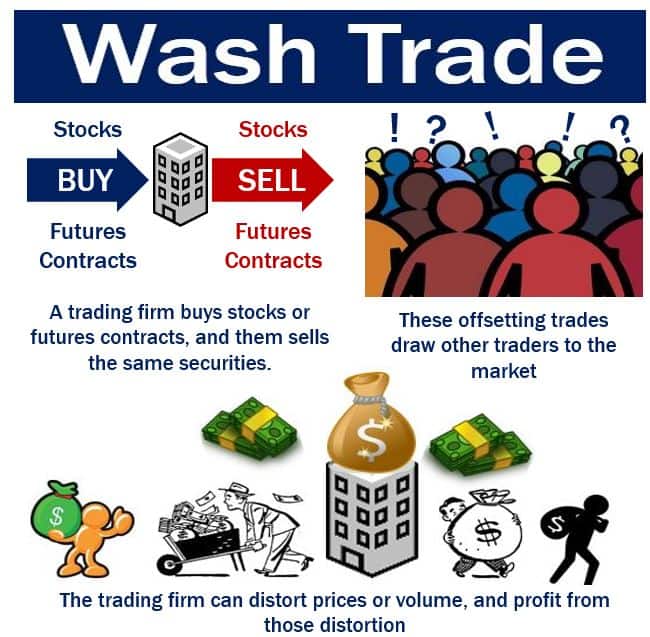A wash trade – also called round trip trading, is a type of market manipulation in which investors simultaneously sell and purchase the same financial instruments.
They may do this to artificially boost trading volume, thus giving the impression that the security is in greater demand that it really is.
Sometimes wash trade is done to generate commission fees to brokers to make up for something that they are unable to be openly paid for. During the Libor Scandal, several participants were involved in wash trade.
This practice is illegal. Several exchanges today have built-in protections, many of which are mandatory for participants, such as self-trade prevention functionality (STPF) on **The ICE.
** ICE stands for InterContinental Exchange. It was founded in 2000 in Atlanta, Georgia, to facilitate the electronic trading (buying and selling) of energy commodities.

Often wash trade involves purchasing shares through one broker and selling them through another broker.
A quick turnaround of position, if the transaction creates market risk for the investor or trader, and alters his or her position, is not considered wash trade.
Regarding wash trade, BusinessDictionary.com makes the following comment:
“This practice is not legal because it deals with selling off and repurchasing investments just to create an increase on the trading market and costs to purchase stocks.”
Wash trade vs. wash sale
Be careful not to confuse the two terms – many people do. A wash sale is the sale of stocks, options or bonds – securities – at a loss, and then repurchasing them or very similar securities within thirty days.
A wash sale strategy is used by investors to try and recognize a tax loss, while their position had not actually changed. Tax authorities in the US, UK, other advanced economies and many parts of the world introduced rules which mean that the loss cannot be claimed any longer.
Wash trade still common
Although wash trade practices became illegal in 1929 after the Wall Street Crash, the speaker in this video claims that they still dominate in the markets.
